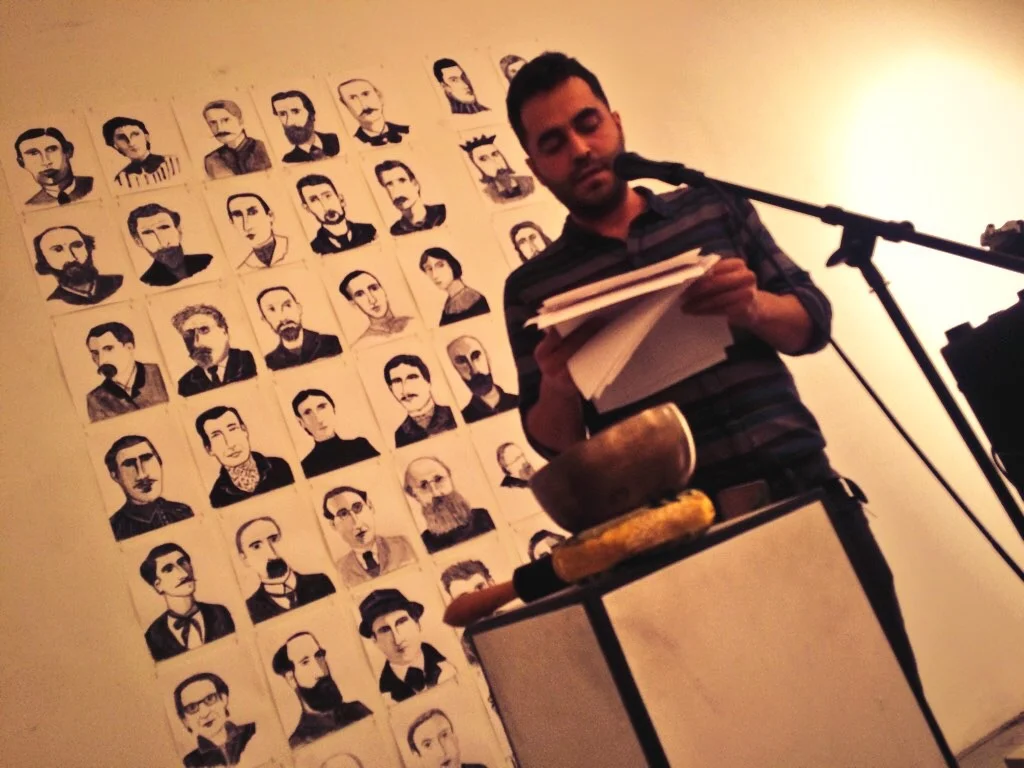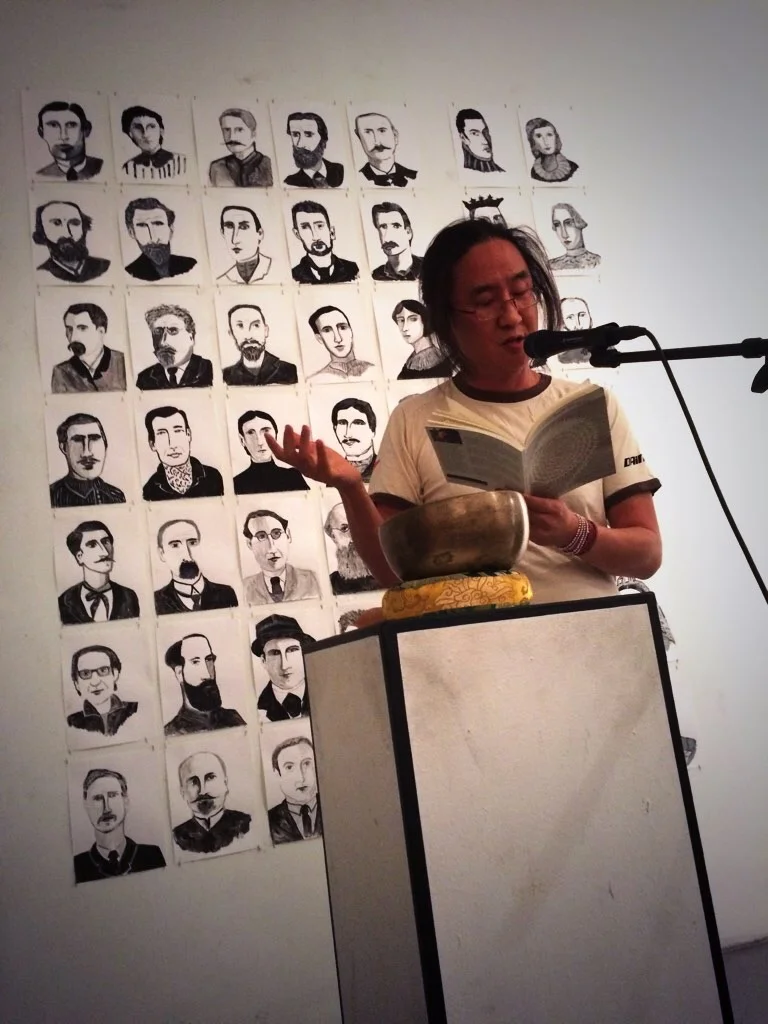Launch reading of Timothy Liu's DON'T GO BACK TO SLEEP (Saturnalia Books) with Rob Ostrom and Vanessa Jimenez Gabb
Here are the notes by Jared with the assistance of Victor Allen toward the introductions for the reading:
VANESSA JIMENEZ GABB:
"williams says love is unworldly and nothing comes of it but love
and nothing
stays in me more than the same person
for more than three thousand days
the treaty of Versailles said yes cut away everything"
Vanessa in an interview on luna luna that her poetry is exploring “who i am in the relationship [with her partner], who i’ve become. The notion of ruin, states of beauty and disrepair that people go through, couples go through, structures go through. If we can actually return somewhere. What about ourselves is lasting. How the personal is political and the political, personal.
All the poets tonight are following this idea- relationships between self and other, personal/political, memory and change.
Vanessa writes: “Be more radical, star, you will say Don’t stand there burning”
---
ROB OSTROM
Rob is putting the myth in mythopoetry
Lucie Brock-Broido mentions sorcery in her blurb for rob and it seems very apt “Turnip fields” horses, red bluebirds, birchbark. “an injured sawn”
What do these spells do? They transport.
He mentions joseph cornell boxes in the notes to his book and the comparison is very apt, the effect of framing, the sense of a childlike awe rendered at a slight distance,
“I woke and found a deer in my bedroom”
waking from a dream into a dream.
In dreams where you are all the characters – but these characters are often elemental . “seven horses eating green from their hooves”
“you moved through my body without touching my body”
this autumnal sort of pastoral dark and magical.
“written on the side of my skull”
TIMOTHY LIU:
Interplay between political and personal history, between the mystery of the past and the tenderness of the present. There is a parallax between history transfigured into gossip (as when in the first poem a horrifiyng atrocity comes up in conversation with the speaker’s hair stylist) but then conversation as mortally serious (the hair stylist dying of throat cancer). Timothy is pulling at the disproportion between these atrocities and the responsibility of the speaker – “What should any of us do while they are alive?” he asks, or describes “surf[ing] the internet all day for atrocities”. There’s an unstable mixture of the careless and the lapidary, living for pleasure and living for history, that weighs the erotic – for instance the sense of how intimacy is inflected with power and submission, how one’s sexuality is this complicated adult trace of one’s childhood, “no one dies in the summertime, he says off the cuff, something I want to be true even if I know winter’s just aroung the corner- a face cord of fragrant wood needing to be stacked even if he won’t ask.”
Timothy describes the “ghost ring” that remains when a wedding band is removed, and a rubbing that records the text on a monument to “homeless spirits” whose stone has since been lost – and perhaps this sort of second-hand memorial is just what Timothy’s work aims at, an elegy for ghosts.




